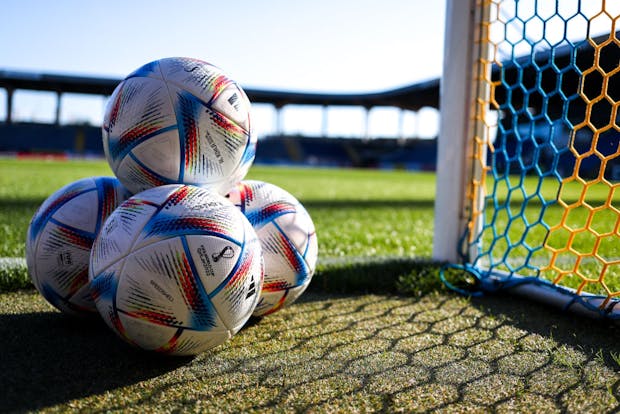
- StarHub to pay $22m for 2022 Fifa World Cup rights in Singapore
- Agreement backed by pre-deals with fellow broadcasters Singtel and Mediacorp
- Deal represents 10-per-cent increase on previous deal in Singapore
Fifa and its sales agent Infront secured an increase in the value of Fifa World Cup media rights in Singapore in what is effectively a renewal with the country’s three main media groups.
Telco StarHub is understood to have led the talks and is the contracting partner with Fifa in a deal worth $22m (€22.5m), covering exclusive rights for the upcoming 2022 Fifa World Cup in Qatar. Agency Infront is selling rights for this year’s World Cup in a group of 26 Asia-Pacific markets under a deal covering all Fifa events from 2015 to 2022.
StarHub will sublicense packages of rights to rival telco Singtel and state broadcaster Mediacorp. Singtel and StarHub will show live coverage of all matches on their respective pay-television and digital platforms.
The three broadcasters worked together on the deal. A similar arrangement was agreed for the 2018 World Cup rights deal, for which Singtel was the lead buyer in a deal worth around $20m.
For the 2018 World Cup, the telcos sold access to live coverage of all matches to consumers in a package costing S$94.16 ($66/€67.50) at an early bird price and S$112.35 ($79/€80.50) at full price. Some existing Singtel subscribers received access to the World Cup via existing packages, while all StarHub subscribers had to buy the package in order to watch the tournament. The telcos had offered the same packaging, at the same price, for the 2014 World Cup. The packaging and pricing for this year’s tournament have not yet been revealed.
Mediacorp is expected to show nine or 10 live matches from the 2022 tournament on its free-to-air linear channels and free-to-watch digital platforms. It showed nine matches free-to-air in 2018. This was an increase on the four matches it showed free-to-air in 2014. Mediacorp’s streaming platform Toggle also offered the premium package covering all matches for the 2018 tournament.
Singapore’s ‘cross-carriage regulation’ effectively means it is impossible for Singtel or StarHub to acquire Fifa World Cup rights exclusively. The regulation was introduced in 2010 to prevent consumers having to sign up to more than one pay-television provider in order to watch their favourite content. It applies to all exclusively acquired content, though in reality is only activated around certain high-value properties.
The increased valuation for World Cup rights in Singapore is a good result for Fifa and Infront given that cross-carriage regulation eliminates competition for the rights. The three buyers represent the totality of Singapore’s domestic linear broadcasting industry.
Pan-regional pay-television sports broadcasters such as beIN Sports and SPOTV were not considered contenders for the rights. The high price for a one-off tournament does not suit their business model as they generally buy content on a pan-regional basis, while Fifa is understood to be reluctant to agree such deals.
Over the past year, StarHub has emerged as the leading sports broadcaster in Singapore, taking the crown from rival Singtel. StarHub’s key move was snatching English Premier League rights from Singtel for the next six seasons from 2022-23 to 2027-28.
An enhanced sports portfolio is part of StarHub’s efforts to revamp its consumer offering, adding richer content and more digital services. It is moving pay-television subscribers over from its old, linear IPTV network to its newer StarHub TV+ streaming platform, which offers third-party streaming services such as Netflix, Disney+ and HBO Go alongside StarHub’s own content which includes a growing selection of sport.
Thailand awaits
With four weeks to go until kick-off at this year’s World Cup, Thailand is the last major market in Asia where Infront is yet to finalise a rights deal. Deals in 2018 – with commercial and pay-television broadcaster TrueVisions and free-to-air broadcaster Amarin TV – were worth between $30m and $40m. TrueVisions showed coverage on its free-to-air channel True4U.
Thailand has been the site of several late deals for major international sports events in recent years. Rights values in the market have been falling and sellers have struggled to reach their asking prices, leading to last-minute deals.
Late interventions by the government and local corporations have helped secure deals on several occasions, including for the last World Cup and for Uefa Euro 2020. This has encouraged sellers to hold out until the last minute.
The Sports Authority of Thailand, the local government sports agency, has already said that it will step in to acquire the rights for this year’s World Cup if no broadcaster does so. SAT said it would ensure the tournament is broadcast on free-to-air television.
The Fifa World Cup is on Thailand’s ‘must-carry’ list of sports events that must be broadcast on free-to-air television. Other events on the list include the Olympic Games, Paralympic Games, the Asian Games, the Asian Para Games, the Southeast Asian Games, and the Asean Para Games.
Speaking two weeks ago, SAT governor Kongsak Yodmanee said: “If no private operators are interested in purchasing the licence, the SAT will buy it. Money to buy the rights could come from the government or the National Sports Development Fund. However, we hope that a private company will strike a broadcast deal with the organiser soon.”
The 2018 World Cup deal was agreed relatively late – two months before the tournament began – and financial backing was guaranteed by a group of nine local companies, who received advertising and sponsorship slots around the coverage.
The companies were: BTS Group, which operates Bangkok’s mass rail transit system; alcoholic drinks maker ThaiBev; conglomerate CP Group; energy firm Gulf; banking group Kasikornbank; travel retail group King Power; chemicals firm PTTGC; petroleum refiner and distributor Bangchak Corporation; and energy drinks brand Carabao Tawandang. Local industry insiders say these corporations were corralled into the deal by local government figures.